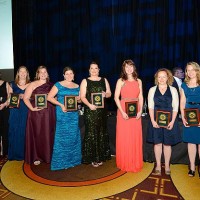Have a Useful Conversation About Work/Life Balance
Blog Post originally Posted on devolab
By: Emily Dolson and Anya Vostinar
It is a commonly acknowledged problem in academia that success often comes at the expense of having a life outside of work (or at least seems like it has to). As a result, there are many attempts to help academics improve their work/life balance. Unfortunately, these attempts often devolve into motivational platitudes and advice that most people have already heard. And understandably so – work/life balance is a tricky subject to confront! This difficulty results from the confluence of two major factors:
- Different people want different things out of their lives, so balance means different things to different people.
- These topics can be so personal that people often don’t feel comfortable discussing them in concrete terms.
The result is that people speak in vague abstractions and don’t realize that they aren’t communicating ideas that other people can actually apply to their lives.
So we were both pleasantly surprised when we went to the work/life balance session at the CRA-W Graduate Cohort event last year and came away from it feeling like it had actually been helpful. The two women running the session were very clear from the get-go that there are no universal answers here, that everyone needs to figure out for themselves what they want out of their life. And figuring that out was the focus of the workshop. A large portion of the time was devoted to introspectively answering the following questions:
- What does work/life balance mean to you?
- What are some signs that your life is in balance? Out of balance? (This could be anything from whether or not you live in the same place as your significant other to whether or not you have time to relax and drink your coffee in the morning.)
- What are your personal and professional goals for the future?
We were encouraged to write down our answers to the questions. This extra step really forced us to be concrete and honest with ourselves. Then there was some time for discussing our thoughts on these and other questions in small groups, before sharing them with the workshop as a whole (if we felt comfortable).
Because we were so pleased with this workshop, we volunteered to bring some ideas from it to the GECCO work/life balance event, organized by Women@GECCO. We were grateful for the opportunity to co-organize this year’s discussion with Nur Zinc-Heywood. Since we see having each participant personally interact with the issues of work/life balance as they relate to them as critical to the efficacy of such events, we decided to shift from the panel format used last year to a more discussion-oriented format, like the one at CRA-W.
To get everyone on the same page, we started by giving everyone a chance to answer the first two of the above questions on their own (we left off the third question because this event wasn’t necessarily aimed just at early career people). Then we split everyone up into 8 groups of approximately 6-8 people and let them discuss their answers for about 15 minutes (although many could easily have gone on for much longer than that!). Next, we had each group share what they had discussed. Finally, we transitioned into a full group discussion in which people shared advice and asked questions of the group. The conversation was still going strong when our allotted time was up!
So, on the whole, we’re pretty pleased with how it went! Of course, things can always go better – here are a few things we’d like to differently next time:
- Use a clock to time how long the participants have to write down their answers to questions – time is very hard to judge when you are standing in front of a large group of people without anything to do. We measured how long we gave for the small group discussions, and that was definitely useful.
- Make it clear that people are welcome to ask new questions in the full group discussion – there was a brief lull in the conversation after answers to the starter question (“What are some effective strategies for maintaining balance?”) was exhausted. Fortunately, Una-May O’Reilly filled it by asking an excellent question about how PIs can promote work/life balance for their mentees, but in retrospect we should have made it clearer initially that this conversation was allowed and expected to drift from the original question.
- Provide some sort of mechanism for not drifting away from a given topic too quickly – once people realized that they were welcome to raise new questions, they did so frequently. In some cases it might have been nice to stay on a given topic for a bit longer. It’s not obvious how to achieve this, but it’s probably worthy of further thought.
Fortunately, we’ll have an opportunity to try these changes out really soon, because we’re running a similar event at the annual BEACON congress!





